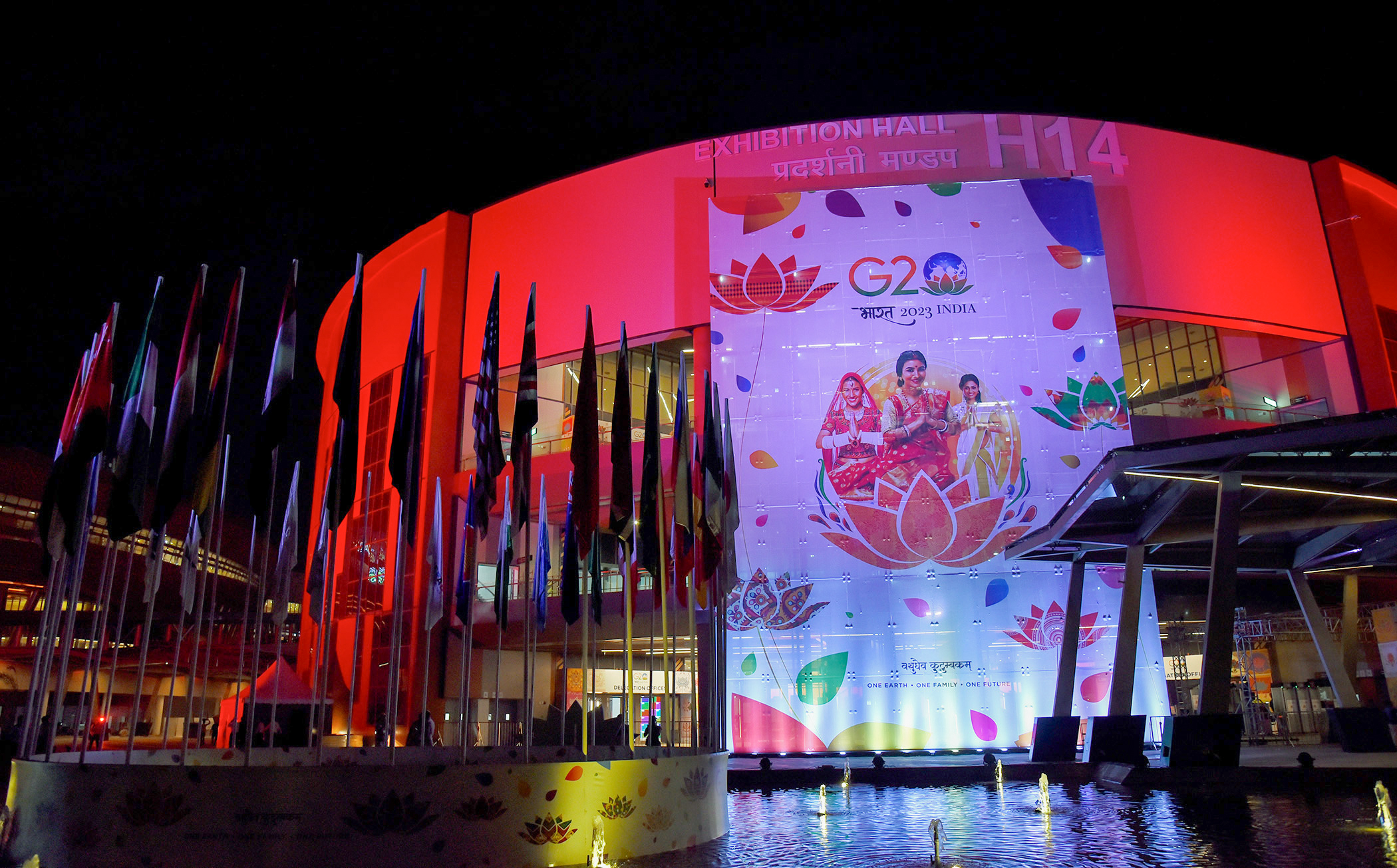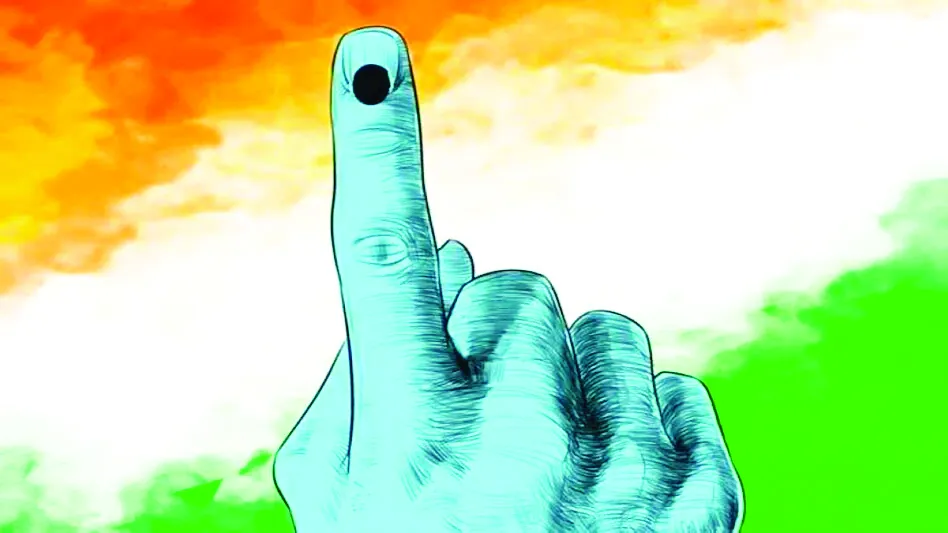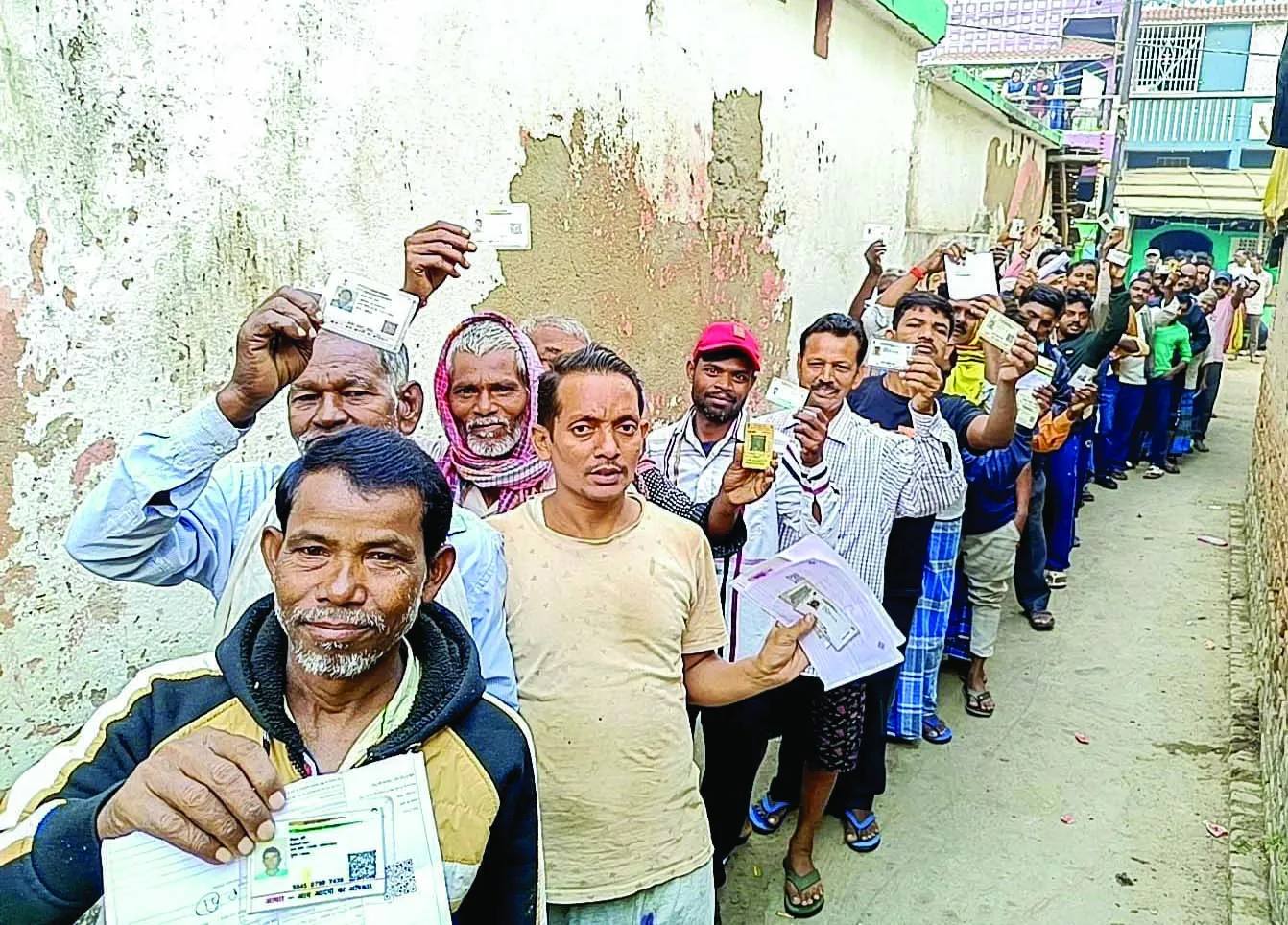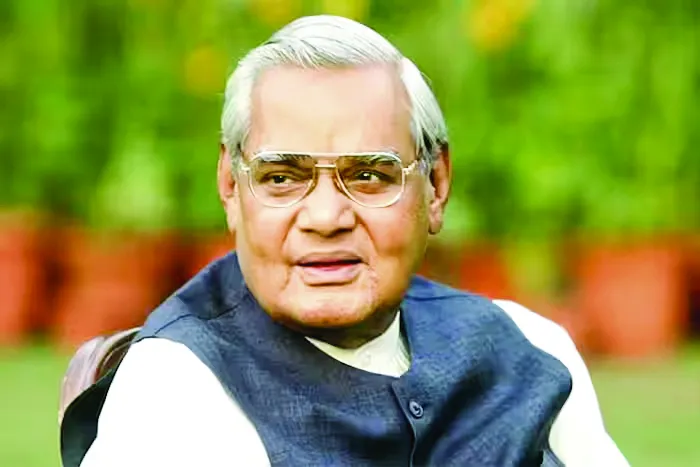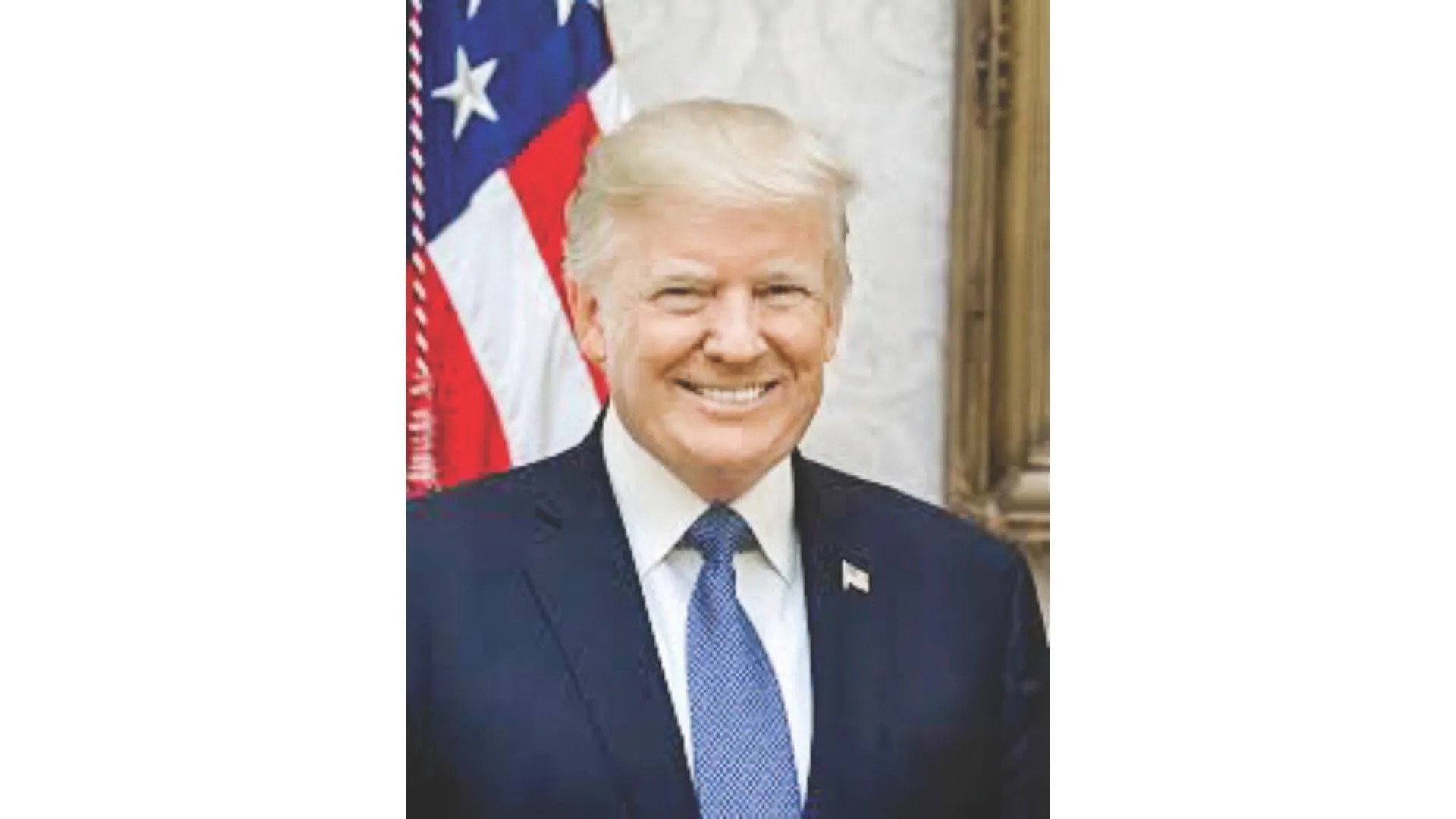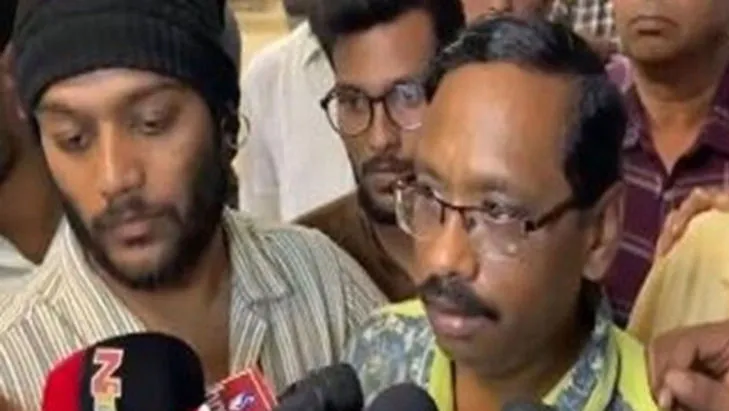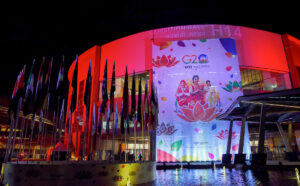It’s India’s shining moment under the sun as New Delhi hosts the summit of the leaders of the world’s top economies on September 9-10. The G20 summit signals a new peak India has scaled in terms of its global standing and prestige, with its presidency widely seen as pathbreaking and transformational, holding the key to a clutch of burning global issues. The summit has been preceded by another stellar moment in the nation’s onward ascent. The launch of the historic lunar mission to the south side of the moon, making India the first country to perform this feat, has sparked national jubilation, putting the global spotlight on what this emerging Asian powerhouse can do and achieve.
Building Bridges
With the world riven by conflicts, chaos and crises, India’s G20 presidency has emerged as an emblem of “Hope, Healing and Harmony.” In a deeply polarised world marked by poly-crisis and paranoia, India has emerged as a bridge-builder and great reconciler, bridging divides and geopolitical fault-lines. The New Delhi Declaration is ready for unveiling, an ambitious and result-oriented document that has been reached after months of intense negotiations. The Declaration is almost ready and will be adopted after the leader’s declaration on September 10.
Taking the long view, what has stood out is that just when some powerful countries are showing a tendency to withdraw into their shells, India is keeping the torch burning for globalism and international solidarity, which has been epitomised in its G20 credo “Vasudhaiva Kutumbakam.”
In a seminal sense, the ancient Indian ethos could turn out to be a lasting legacy of India’s G20 presidency and, if practised in its true spirit, could ignite inclusive multilateralism which can help alleviate multiple crises that beset the world.
Inclusion: Global South & Africa
Inclusiveness, equity, and justice are key drivers of the ambitious and action-packed agenda that frames India’s G20 presidency. In his remarks at various G20 meetings, Prime Minister Narendra Modi has underlined the centrality of inclusion, with his exhortation of “leaving no one behind.” It is in this spirit that India has placed interests and aspirations of the Global South at the heart of its G20 agenda. In this respect, India’s G20 presidency marks a turning point for the ascendance of the Global South in the multilateral agenda. Four successive G20 presidencies of emerging powers, including Indonesia, India, Brazil and South Africa, are poised to be a game-changer and shape the future evolution of the world’s most representative global grouping. India’s drive to seek inclusion of the 54-nation African Union as a full member of the G20 is an extension of New Delhi’s focus on the Global South and forging an inclusive world order. Complementing the Voice of Global South Summit, this year India has ensured the highest African participation in the G20 till date, by including Mauritius, Egypt, Nigeria, AU Chair – Comoros, and AUDA-NEPAD as invitees to the forum. Above all, India’s G20 presidency has emerged as an exemplar and “has sowed seeds of confidence in countries of the so-called Third World,” in the words of Prime Minister Modi.
India’s G20 Legacy
Moving beyond the spectacle and pageantry that will mark the biggest diplomatic event India has hosted in decades, what will be New Delhi’s enduring legacy? Opinions may differ on it, but if one were to take the long view, mass participation in G20 meetings across India can be considered a signature achievement. Bringing an elite forum whose debates revolve around complex issues closer to ordinary people requires imagination and a leap of faith. The transformation of the G20 into a people’s festival underlines the need to make multilateral diplomacy people-centric. By the time India’s G20 Presidency term ends, over 220 meetings would have been organised across 60 cities, in all 28 states and 8 Union territories. Over 100,000 participants from around 125 nationalities would have visited a new incredible India of enterprise, innovation and imagination.
In terms of transformative outcomes, India is set to leave a lasting legacy, with trailblazing outcomes expected in crucial areas, ranging from the reform of Multilateral Development Banks (MDBs) and the inclusion of the African Union in G20 to Green Development Compact and harnessing technology for promoting digital inclusion. Under India’s G20 leadership, many new initiatives have concretised, including the setting up of a new Disaster Risk Reduction Working Group within the Sherpa track and the formalisation of a Women’s Working Group. These endeavours, coupled with the elevation of the G20 Research and Innovation Initiative Gathering (RIIG) into a comprehensive Working Group during the ministerial meeting in Mumbai, reflect India’s commitment to innovation-driven progress, says India’s G20 sherpa Amitabh Kant in his article written for India and the World. In an important achievement, the ‘G20 2023 Action Plan on Accelerating Progress on the SDGs,’ was unanimously adopted by all G20 member countries in the Development Ministers’ Meeting in Varanasi in June.
Human-Centric World Order
Looking ahead, India’s G20 presidency will be remembered for making the G20 a catalytic agent for people’s empowerment and paving the way for “a human-centric world order,” in the words of Prime Minister Modi. Being human-centric means going beyond ideological binaries and the North-South divide to create tangible improvement in people’s lives. The pandemic has pushed millions of people deeper into poverty and placed several countries under debilitating debt distress. While millions don’t have food on the table, many nations, deluded by false glory and machismo, are stoking conflicts for geopolitical ends. In this gloom-and-doom world, a forum like the G20 can only stay relevant by reinventing and moulding it closer to all-too-human needs and yearnings. What coheres diverse strands of India’s G20 presidency is precisely this human-centric focus: seeking unity amid divisions and harmony amid polarisations. The only way to address global challenges effectively is to focus on what unites us, not what divides us, said PM Modi. The ancient Sanskrit saying “Sarvajan Hitaya, Sarvajan Sukhaya” (For the welfare of all, for the happiness of all) shows the way forward, and crytallises the essence of India’s G20 presidency.
Manish Chand is CEO, Centre for Global Insights India, a think tank focused on global affairs and India Writes Network. He is Editor-in-Chief, India and the World, a journal on international affairs. He has edited three volumes of essays on India’s G20 Presidency.

